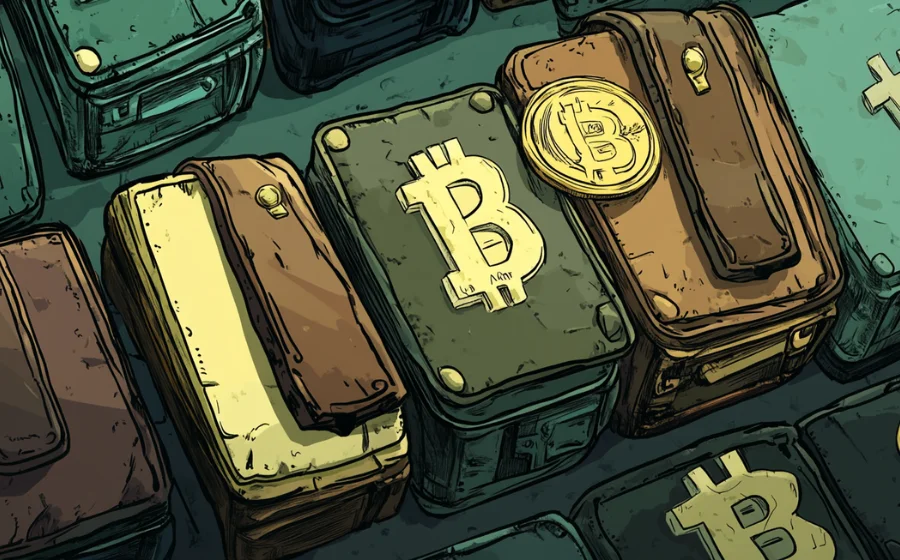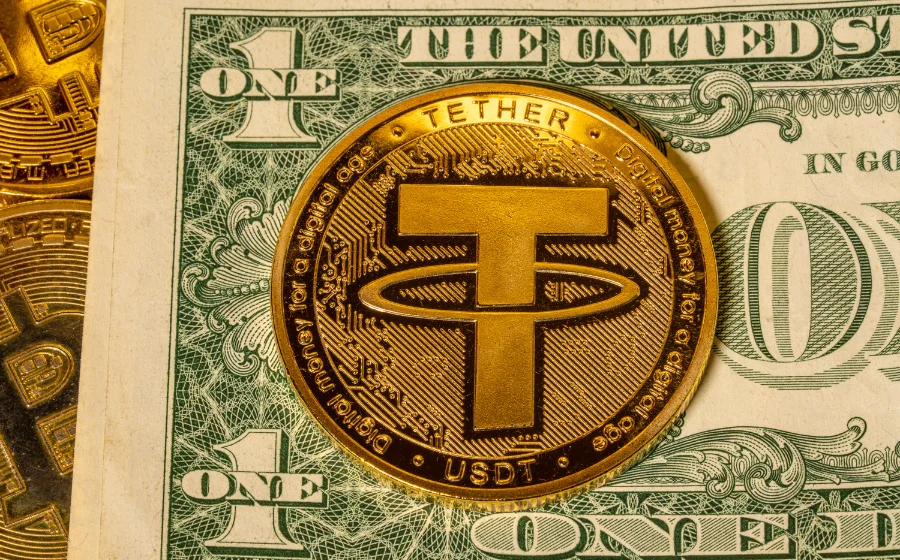
KEYTAKEAWAYS
- Custodial crypto wallets are convenient and offer account recovery, but since users don't control their private keys, they're vulnerable to platform hacks and failures.
- Non-custodial wallets give users complete control over their assets and better privacy, but come with greater responsibility: users must manage their own private keys
- Choose custodial wallets for simplicity or non-custodial wallets for security and DeFi interactions, based on your experience and needs.

CONTENT
Learn the difference between custodial crypto wallets and non-custodial wallets, their pros and cons, and which type best suits your needs to ensure your crypto asset security and control.
Custodial crypto wallets and non-custodial wallets are essential tools for managing and storing cryptocurrencies, but they differ significantly in terms of control and security. The phrase “Not your key, not your coin” perfectly encapsulates the importance of owning your private keys and maintaining full control over your crypto assets.
The collapse of centralized exchanges like FTX has heightened awareness of the risks associated with custodial crypto wallets. As a result, users who prioritize the safety of their assets are increasingly shifting to non-custodial wallets to minimize third-party risks.
Below, we’ll dive into what custodial crypto wallets and non-custodial wallets are, their pros and cons, and which type of user each wallet is best suited for.
>>> More to read: Crypto Cold Wallet vs. Hot Wallet: What’s the Difference
WHAT IS A CUSTODIAL WALLET?
A custodial wallet is a crypto wallet managed by a third party, such as an exchange or financial institution. In this model, the third-party platform holds the private keys, meaning they have the final authority over the assets within the wallet, not the user.
The most common example of custodial wallets are accounts provided by centralized exchanges (like Binance or Coinbase).
➤ Pros and Cons of Custodial Wallets
✎ Pros:
-
High Convenience:
Users don’t need to manage their private keys, making it an ideal choice for beginners or those unfamiliar with technical processes. Third parties usually provide easy-to-use platforms for buying and selling crypto.
-
All-in-One Trading Services:
Custodial wallets are often integrated with trading platforms, allowing users to purchase, trade, and stake cryptocurrencies directly without transferring assets to other wallets.
-
Simplified Recovery:
If passwords or account information are lost, the third party can assist with account recovery, reducing the risk of permanent asset loss.
✎ Cons:
-
Lack of Private Key Control:
Since the private key is held by a third party, users do not have direct control over their assets. If the platform is hacked or goes bankrupt, assets could be at risk. The collapse of FTX highlighted the dangers of relying heavily on custodial wallets.
-
Centralization Risks:
The third party acts as the sole manager of the assets, introducing risks of platform failure or asset freezes. It’s crucial to carefully evaluate the security and reputation of the custodian.
-
Privacy Concerns:
Most custodial wallet providers require users to complete Know Your Customer (KYC) verification. While this enhances security, it may lead to concerns over personal data exposure.
➤ Who Should Use Custodial Wallets?
- Beginners: Simple to use, with no need to manage private keys, lowering the entry barrier.
- Frequent Traders: Integrated with trading platforms for easy and quick crypto transactions.
- Short-Term Holders: Prioritize convenience over long-term asset security.
As awareness of crypto market risks grows, users with higher asset security requirements are increasingly turning to non-custodial wallets to ensure full control over their assets.
>>> More to read: Top 4 Popular Crypto Hot Wallets In 2025
WHAT IS A NON-CUSTODIAL WALLET?
A non-custodial wallet allows users to have full control over their private keys and crypto assets without relying on any intermediaries or third-party services. In this model, users manage and safeguard their private keys, ensuring that they retain ultimate authority over their funds.
Popular examples of non-custodial wallets include MetaMask and Trust Wallet, which enable users to directly manage private keys and interact with blockchain networks.
➤ Pros and Cons of Non-Custodial Wallets
✎ Pros:
-
Full Control
Users have complete ownership of their private keys and assets, eliminating the centralization risks associated with custodial crypto wallets. There’s no risk of losing funds due to platform bankruptcy or asset freezes.
-
Privacy Protection
No need to disclose personal information to third parties during the setup and use of the wallet, reducing the risk of privacy breaches from Know Your Customer (KYC) procedures.
-
Flexibility and Versatility
Non-custodial wallets allow users to interact with multiple blockchains and decentralized applications (Dapps), enabling diverse crypto transactions and asset management.
✎ Cons:
-
Higher Complexity
Compared to custodial crypto wallets, non-custodial wallets require more technical knowledge and manual operations. Transactions must be signed manually, and the process may be intimidating for beginners.
-
Security Risks
Users are responsible for safeguarding their private keys. If the keys are lost or compromised, the assets are irretrievable and vulnerable to theft. This self-custody feature places full responsibility on the user.
-
Potential for Scams and Hacks
When interacting with Dapps or signing smart contracts, users must be vigilant to avoid malicious websites and fraudulent contracts. Connecting a wallet to an unsafe platform can lead to asset theft.
➤ Who Should Use Non-Custodial Wallets?
- Experienced Crypto Users: Those familiar with blockchain technology and capable of securely managing private keys.
- Long-Term Holders (HODLers): Investors looking to store their assets for the long term in a secure environment, free from third-party risks.
- DeFi and Dapp Enthusiasts: Users who frequently engage with decentralized finance (DeFi), NFT marketplaces, and other blockchain applications.
While non-custodial wallets provide greater security and autonomy, users must handle their private keys carefully to avoid irreversible asset loss due to operational errors or scams.
>>> More to read: Top 3 Popular Crypto Cold Wallets In 2025
CUSTODIAL WALLETS | WHICH ONE SHOULD YOU CHOOSE?
Most crypto users utilize both custodial crypto wallets and non-custodial wallets depending on their needs. If you prefer full control over your assets or wish to engage with DeFi applications directly, a non-custodial wallet is the best choice.
On the other hand, if you are looking for a service provider to manage your assets securely while you trade or invest, opting for a reliable custodial crypto wallet may suit you better.
Regardless of the type of wallet you choose, always exercise caution and implement best practices to enhance the security of your funds.
>>> More to read: How to Get Crypto Passive Income Easily?


















